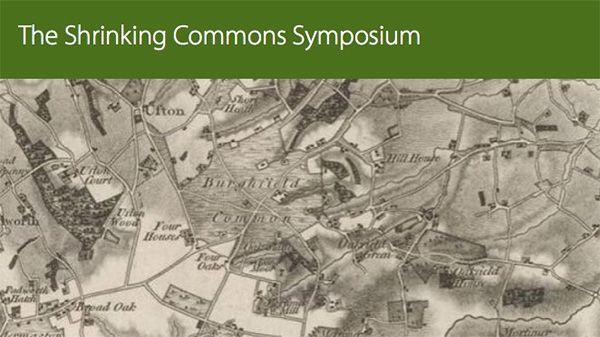Professor Sarah Radcliffe - The Shrinking Commons and Uneven Geographies of Development
Duration: 26 mins 28 secs
Share this media item:
Embed this media item:
Embed this media item:
About this item

| Description: | Global development geographies have always been characterized by skewed access to dignified and stable livelihoods and public services. Yet since the late 20th century, the distribution of development resources and social programmes of protection have undergone significant shifts, resulting in the shrinking of social provision and ever greater conditionality. While philosophy advocates consideration of ‘equally vulnerable human beings’ in a global horizon (Rawls, O'Neill), development interventions have become ever more targeted at particular subpopulations, who are represented as more vulnerable and at risk than other groups. Access to shrinking aid resources and social protection are additionally set around by strict conditionalities that elicit certain behaviours and dispositions among recipients. The paper argues that development's shrinking commons consolidates an affective disavowal of co-responsibility and connection, resulting in the erasure of common agendas between development professionals and project beneficiaries, between donor and recipient, and between global north and south. The paper examines development's uneven geographies at various scales from global aid flows, through to globally-deployed social protection schemes (which substitute for universal welfare), and examples of on-the-ground projects to illustrate these points. |
|---|
| Created: | 2015-01-13 15:05 |
|---|---|
| Collection: |
Shrinking Commons Conference
Shrinking Commons |
| Publisher: | University of Cambridge |
| Copyright: | Professor Sarah Radcliffe |
| Language: | eng (English) |
| Distribution: |
World
|
| Keywords: | Shrinking Commons; |
| Explicit content: | No |
| Abstract: | Global development geographies have always been characterized by skewed access to dignified and stable livelihoods and public services. Yet since the late 20th century, the distribution of development resources and social programmes of protection have undergone significant shifts, resulting in the shrinking of social provision and ever greater conditionality. While philosophy advocates consideration of ‘equally vulnerable human beings’ in a global horizon (Rawls, O'Neill), development interventions have become ever more targeted at particular subpopulations, who are represented as more vulnerable and at risk than other groups. Access to shrinking aid resources and social protection are additionally set around by strict conditionalities that elicit certain behaviours and dispositions among recipients. The paper argues that development's shrinking commons consolidates an affective disavowal of co-responsibility and connection, resulting in the erasure of common agendas between development professionals and project beneficiaries, between donor and recipient, and between global north and south. The paper examines development's uneven geographies at various scales from global aid flows, through to globally-deployed social protection schemes (which substitute for universal welfare), and examples of on-the-ground projects to illustrate these points. |
|---|---|

